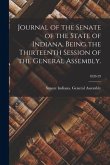John Gerring
Party Ideologies in America, 1828-1996
John Gerring
Party Ideologies in America, 1828-1996
- Broschiertes Buch
- Merkliste
- Auf die Merkliste
- Bewerten Bewerten
- Teilen
- Produkt teilen
- Produkterinnerung
- Produkterinnerung
Historical analysis of the ideologies of major American parties from the early-nineteenth century onwards.
Andere Kunden interessierten sich auch für
![Compliance Ideologies Compliance Ideologies]() Richard W. WilsonCompliance Ideologies35,99 €
Richard W. WilsonCompliance Ideologies35,99 €![American Slave Trade; Or, an Account of the Manner in Which the Slave Dealers Take Free People From Some of the United States of America, and Carry Them Away, and Sell Them As Slaves in Other of the States; and of the Horrible Cruelties Practised in the C American Slave Trade; Or, an Account of the Manner in Which the Slave Dealers Take Free People From Some of the United States of America, and Carry Them Away, and Sell Them As Slaves in Other of the States; and of the Horrible Cruelties Practised in the C]() Jesse TorreyAmerican Slave Trade; Or, an Account of the Manner in Which the Slave Dealers Take Free People From Some of the United States of America, and Carry Them Away, and Sell Them As Slaves in Other of the States; and of the Horrible Cruelties Practised in the C20,99 €
Jesse TorreyAmerican Slave Trade; Or, an Account of the Manner in Which the Slave Dealers Take Free People From Some of the United States of America, and Carry Them Away, and Sell Them As Slaves in Other of the States; and of the Horrible Cruelties Practised in the C20,99 €![Russia's 1996 Presidential Election Russia's 1996 Presidential Election]() Michael McfaulRussia's 1996 Presidential Election11,99 €
Michael McfaulRussia's 1996 Presidential Election11,99 €![Federal Register May 7, 1996 Federal Register May 7, 1996]() Federal Register May 7, 199617,99 €
Federal Register May 7, 199617,99 €![America, but Better America, but Better]() Chris CannonAmerica, but Better18,99 €
Chris CannonAmerica, but Better18,99 €![Ideologies in Action Ideologies in Action]() Ideologies in Action198,99 €
Ideologies in Action198,99 €![Journal of the Senate of the State of Indiana, Being the Thirteenth Session of the General Assembly.; 1828-29 Journal of the Senate of the State of Indiana, Being the Thirteenth Session of the General Assembly.; 1828-29]() Journal of the Senate of the State of Indiana, Being the Thirteenth Session of the General Assembly.; 1828-2926,99 €
Journal of the Senate of the State of Indiana, Being the Thirteenth Session of the General Assembly.; 1828-2926,99 €-
-
-
Historical analysis of the ideologies of major American parties from the early-nineteenth century onwards.
Hinweis: Dieser Artikel kann nur an eine deutsche Lieferadresse ausgeliefert werden.
Hinweis: Dieser Artikel kann nur an eine deutsche Lieferadresse ausgeliefert werden.
Produktdetails
- Produktdetails
- Verlag: Cambridge University Press
- Seitenzahl: 352
- Erscheinungstermin: 8. Oktober 2004
- Englisch
- Abmessung: 229mm x 152mm x 21mm
- Gewicht: 572g
- ISBN-13: 9780521785907
- ISBN-10: 0521785901
- Artikelnr.: 21801964
- Herstellerkennzeichnung
- Libri GmbH
- Europaallee 1
- 36244 Bad Hersfeld
- gpsr@libri.de
- Verlag: Cambridge University Press
- Seitenzahl: 352
- Erscheinungstermin: 8. Oktober 2004
- Englisch
- Abmessung: 229mm x 152mm x 21mm
- Gewicht: 572g
- ISBN-13: 9780521785907
- ISBN-10: 0521785901
- Artikelnr.: 21801964
- Herstellerkennzeichnung
- Libri GmbH
- Europaallee 1
- 36244 Bad Hersfeld
- gpsr@libri.de
John Gerring (PhD, University of California, Berkeley, 1993) is Professor of Political Science at Boston University, where he teaches courses on methodology and comparative politics. His books include Social Science Methodology: A Criterial Framework (Cambridge University Press, 2001), Case Study Research: Principles and Practices (Cambridge University Press, 2007), A Centripetal Theory of Democratic Governance (Cambridge University Press, 2008), Concepts and Method: Giovanni Sartori and His Legacy (Routledge, 2009), Social Science Methodology: Tasks, Strategies, and Criteria (Cambridge University Press, 2011), Global Justice: A Prioritarian Manifesto (in process), and Democracy and Development: A Historical Perspective (in process). He served as a fellow of the School of Social Science at the Institute for Advanced Study (Princeton, NJ), as a member of The National Academy of Sciences' Committee on the Evaluation of USAID Programs to Support the Development of Democracy, as President of the American Political Science Association's Organized Section on Qualitative and Multi-Method Research, and is the current recipient of a grant from the National Science Foundation to collect historical data related to colonialism and long-term development.
Part I. Introduction: 1. Argument
2. Rethinking the ideology debate
Part II. The Whig-Republican Party: 3. The national epoch (1828-1924)
4. The neoliberal epoch (1928-92)
Part III. The Democratic Party: 5. The Jeffersonian epoch (1828-92)
6. The populist epoch (1896-1948)
7. The universalist epoch (1952-92)
Part IV. Conclusion: 8. What drives ideology change?
9. Does ideology matter?
Epilogue.
2. Rethinking the ideology debate
Part II. The Whig-Republican Party: 3. The national epoch (1828-1924)
4. The neoliberal epoch (1928-92)
Part III. The Democratic Party: 5. The Jeffersonian epoch (1828-92)
6. The populist epoch (1896-1948)
7. The universalist epoch (1952-92)
Part IV. Conclusion: 8. What drives ideology change?
9. Does ideology matter?
Epilogue.
Part I. Introduction: 1. Argument
2. Rethinking the ideology debate
Part II. The Whig-Republican Party: 3. The national epoch (1828-1924)
4. The neoliberal epoch (1928-92)
Part III. The Democratic Party: 5. The Jeffersonian epoch (1828-92)
6. The populist epoch (1896-1948)
7. The universalist epoch (1952-92)
Part IV. Conclusion: 8. What drives ideology change?
9. Does ideology matter?
Epilogue.
2. Rethinking the ideology debate
Part II. The Whig-Republican Party: 3. The national epoch (1828-1924)
4. The neoliberal epoch (1928-92)
Part III. The Democratic Party: 5. The Jeffersonian epoch (1828-92)
6. The populist epoch (1896-1948)
7. The universalist epoch (1952-92)
Part IV. Conclusion: 8. What drives ideology change?
9. Does ideology matter?
Epilogue.








